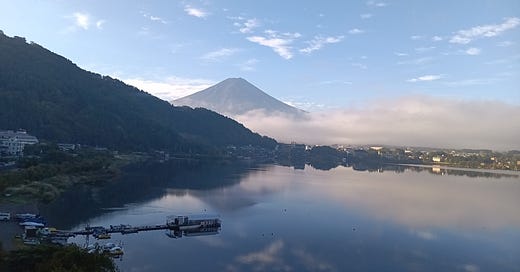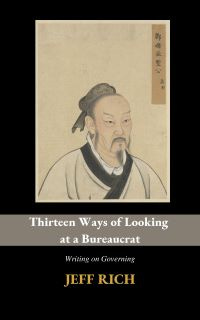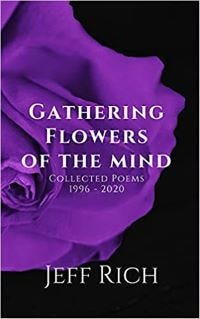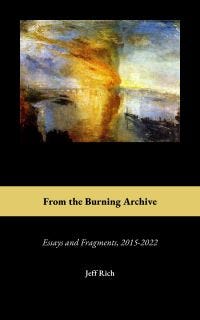Thanks for joining me in 2024 on my fantastic journeys through history on the Burning Archive. 2024 has brought twelve gifts, my highlights of the year in review. These gifts will keep on giving here on the Burning Archive in 2025.
This is my last post for 2024. I will be taking a short summer break and resuming on January 4. But here are my twelve gifts of 2024 from the Burning Archive.
1. Finding you.
Through the Burning Archive I have found you. I have written all my life, and yet not till two years ago had I found a lasting connection with an audience. Thank you for reading my writing.
In 2024 my Substack has grown from just under 200 subscribers to nearly 1,500 subscribers. My YouTube subscriber count has grown from 2,000 to 19,000.
I am thankful for your interest and engagement with my writing. Your subscriptions, reading, feedback, comments and praise has been deeply affirming of my decision to follow this sometimes remote and isolated path of independent author.
It makes a difference to my writing to know that it connects with you, and that I am not screaming into the ethernet. Your readership and feedback has also helped me to refine my ideas about what I will offer you in 2025.
The gifts of 2024 have given me many great ideas about how to make the Burning Archive an even richer reading experience for you.
If you are a free subscriber, please consider upgrading to paid, and join with me and a merry band of readers in search of the meaning of our changing world.
And what is more, after noticing the recent appreciation of the US dollar (the Aussie dollar has dropped a lot relatively), I have decided to reduce the paid subscription rate to $5USD monthly or $50USD yearly, and to restructure my “Founder’s subscription” as the Angels of History membership program.
In 2025 you will pay less and get more. Please join the Burning Archive as a paid subscriber or Angel of History now.
2. Finding collaborators in my story
In 2025 I have found other writers and ‘content creators’ who share my interests and passion for peaceful dialogue between the many cultures of the world. I have connected with writers, thinkers and concerned citizens around the world.
I have done collaborations with the DD geopolitics team, the Duran, Hrvoje Moric, the Multipolar Peace Alliance, Warwick Powell, and Pascal Lottaz from Neutrality Studies. I even had the pleasure to meet up with Pascal in Kyoto when I travelled there on a holiday in October.
I have interviewed Sophie Loy-Wilson, Warwick Powell, Sam Roggeveen, and, just this week, KJ Noh. These interviews build on my earlier interviews with historians, Felipe Fernández-Armesto, Marie Favereaux, and Hannah Forsyth. I am planning more interviews next year to bring new perspectives on world history from around the world.
I have also published articles in Pearls and Irritations (johnmenadue.com) and in the De/Cypher Journal of the Advanced Study Institute of Asia in Delhi. Perhaps most wonderfully of all, I spoke to a lunch group at the Savage Club of Melbourne. It was wonderful to get out of my study and speak with the members of this historic club.
3. The Gift of the 121 Nobel Prizes for Literature
I gave myself an enormous, almost overwhelming gift this year, that I hope you also enjoyed receiving. I read a little of every single winner of the Nobel Prize for Literature.
I presented this series as a ‘Reading Challenge’. The challenge almost overwhelmed me. It would have been better described as an invitation to a lifelong journey through literature. At times, I felt like I had become Kafka’s Hunger Artist.
But I really did read 121 Nobel Laureates in 121 days, and wrote a post or made a video on all 121 writers. In the process I read for the first time 77 great writers from world literature. What a gift!
The surprising gift of this challenge to me was how I discovered so much about the cultural history of the modern world. If you explore or sample the renamed Nobel Archive - where I have curated and indexed all 121 Nobel Literature Prize winners from 1901 to 2024 - you will discover these themes of cultural history. You will encounter old favourites and forgotten beauty.
In my weekly Saturday posts in 2025, I will dip into this word hoard of literature and history regularly. I will share with you some lost wisdom and historical insights.
4. Losing My Direction on Teaching
Over the last two years I have tried several models of offering online courses. I developed a Government Writer Masterclass, and no one bought it. I offered programs on how to do history and an introduction to the history of civilizations, and adapted them with feedback from a handful of students. I tried a standalone guide on geopolitics and history, and then decided to include it here as one feature I offer to my paid subscribers. I developed my post-1945 world history reading guide along the same lines. This week I offered my first standalone paid webinar on Emmanuel Todd, The Defeat of the West.
These experiments and feedback from several quarters suggest that people prefer shared programs, rather than ‘courses’. This is the reason I have adapted both my paid subscription and my top-tier membership level here on Substack as a shared reading and discussion program.
I will, however, keep experimenting with models over 2025 and would love to hear from you about any ideas about how I can help you with your search to learn from history or to reconnect with quality literature.
5. Climb to the Summit of the Magic Mountain
In October I visited Japan, and watched dawn break over the magical Mount Fuji. It was a beautiful experience, but I did not climb to the top of the legendary mountain.
In December I did however reach the summit of another mountain, Thomas Mann’s 1924 classic of literary modernism, The Magic Mountain. Mann’s novel tells the story of tuberculosis patients at a sanatorium in Davos on the cusp of World War One. They live on the magic mountain like a ship of fools, separated from the flatlands of Europe, and debate the ideas of European culture, on the cusp of the festival of death that was the Great War.
This 700-page novel of ideas concludes with this sentence, which I share with you, confident that it does not spoil the magic.
And out of this worldwide festival of death, this ugly rutting fever that inflames the rainy evening sky all round - will love someday rise up out of this, too?
(Mann, Magic Mountain, trans John E Woods, p. 706)
I first tried to read this book more than thirty years ago. I took it with me to the old sanatorium-like chalet on Mount Buffalo about 350 kilometres northeast of Melbourne. I had gone there on my own health retreat to protect the health of my lungs in the final stage of giving up smoking. A psychotherapist had recommended Mann’s novel to me, and it was a sympathetic symbol with what I was trying to do. I achieved my health goal, but not my reading aim.
Check out my YouTube channel on Sunday evening for a short video offering my reflections on reading Thomas Mann, The Magic Mountain in its centenary year.
What changed in 2024? I joined a shared, slow read program with
. The pointers, company and chance to ask questions and share perspectives with a group of fellow readers made all the difference.The experience convinced me of the value of using a platform like Substack to do shared, slow reads. In other times, we joined reading groups or book clubs, in person or online. But slow read programs - such as those offered by Samantha and Simon Haisell - help you experience these great books more fully. You get to listen to well-timed talks, read recommended articles on the book and its context, and the company of a friendly guide who shares your climb to the summit.
I will be taking what I have learned from Samantha Rose Hill and Simon Haisell and applying those lessons to my own slow read program next year.
I have chosen one living Nobel Prize-winning writer (rather than a ‘dead white male’) - Olga Tokarczuk, The Books of Jacob. We will read it together over 32 weeks - one chapter per week - from February.
And later in the year, we will dip our toe into one of the greatest, longest and oldest works of world literature, outside the Western Canon, the Mahabharata.
I will be posting the reading schedule and guide to the Slow Read program in January.
6. Five Great States in a Boundless World
The Mahabharata has long been a gift of the Burning Archive. I read it in my twenties, and watched the great experimental theatre director, Peter Brook, adapt it in a nine-hour theatre performance that was later turned into a television drama. So I was primed to understand the significance of this epic literature to Indian or South Asian statecraft when I read The India Way, the exceptional book by Indian External Affairs Minister, Dr S. Jaishankar. It shapes Indian thought as much as Homer or the Bible or Enlightenment philosophes shape Western tradition.
In The India Way, Dr S. Jaishankar explained that the natural state of the world is multipolarity and that the Mahabharata had shaped how he imagined this multipolar world. The Mahabharata was a form of history, and expressed a way of seeing within Hindu thought. As the distinguished scholar Wendy Doniger has written, this mindset sees the world “as boundlessly various, that everything occurs simultaneously, that all possibilities may exist without excluding each other.”1
I have absorbed deeply that assumption: the world of history is “boundlessly various.” It is one of the gifts from my reading of the Mahabharata and great pluralist historians like Isaiah Berlin and Felipe Fernández-Armesto. I have tried to share that same gift with you over my recent series of the five great states of the world: USA, Europe, India, China, and Russia.
In 2025 I will take this idea further and provide you a year-long guide through this “boundlessly various” world. I will reflect on “boundlessly various” perspectives on each of these great states or ‘civilization-states’ - in their history, politics, culture, society and modernist literature.
I will take a world tour through each culture, staying for eight weeks to reflect on how we can imagine their place in our story differently. Each week I will offer a book recommendation and, for paid subscribers, a deep dive into another way of seeing the worlds of the USA, Europe, India, China, and Russia.
The sequence will be (barring any disasters in the world or my writing):
USA - January to March
China - March to May
India - May to June
Europe - July to August
Modernist Literature of Great Cultures - September to October (lead-up to the 2025 Nobel Prize announcement)
Russia - October to December.
All going well, I will explore other regions and cultures in later series.
7. Discover Better Historians
This series will also introduce you to some of the best books in world history today, and help you to appreciate the merits of both renowned and little known historians. I think it will also help you appreciate history as a form of literature.
Discovering new and different historians, who are not featured in the mainstream media, is one of the gifts of the Burning Archive. I am proud of my work over 2024 in bringing attention to the weaknesses of some famous historians and the strengths of those who ought to be better known. Among the pieces I am proudest of this year are:
My piece on Timothy Snyder, “When Historians tell big lies: the case of Timothy Snyder”, which was praised by a Canadian professor of history who specialises in Soviet history in the 1930s
My piece on Niall Ferguson, “Why We’re Not All Soviets Now”
My video on Yuval Noah Harari that is now published as an article in the Delhi-based De/Cypher Journal
My guides to John Darwin, After Tamerlane on Substack and YouTube, and
My interview with Sophie Loy-Wilson on the history of the Australia-China relationship.
I plan to introduce many more over 2025. In 2025, I will also be bringing to the Angels of History membership program my Mindful History Guide and my introduction to Felipe Fernández-Armesto, Civilisations. I delivered these programs as courses in 2023 and 2024, and will adapt them for you in 2025.
8. Audiobooks and Voiceovers
Another gift of 2024 has been finding my voice - literally, in my voiceovers and mini audiobooks here on Substack.
was kind enough to say I had a great radio voice! The voiceovers also appear on podcasts and YouTube if you ever want to watch or listen to them there.Among my favourite mini audiobooks of the year were:
How the history of emotions can heal childhood sexual abuse, in which I read my own essay on how the Australian Royal Commission into Institutional Responses to Childhood Sexual Abuse gave a platform to the ‘remembered child who speaks of trauma’.
I will bring you more audiobooks from history and literature of the five great states next year. Let me know of any classic essays or works of history-related literature that you would like me to turn into a mini-audiobook.
9. A Marriage of YouTube and Substack
Slowly over 2024 I have found a way of marrying my content on Substack and YouTube. Fundamentally I am more a writer who appears on video, than a video creator who writes a script. But I am immensely grateful for the audience and confidence that YouTube has given me. It also has a global reach that Substack as yet lacks.
In 2025 I will continue to build on the complementarity of my content on both platforms, and I will share more of what I am doing on YouTube here on Substack.
10. History as Poetic Thought
One gift this year has been the feedback from readers and viewers about the qualities of the writing I offer here on Substack. I think it marks out my publication in quality, substance and intent. I want to preserve that blend of history, commentary and literature. I want to create that kind of writing in which history is a form of poetic thought. That is how Hannah Arendt described the essays of Walter Benjamin, whose story of the Angel of History in Theses on the philosophy of history inspired the Burning Archive.
I will tell this story and read Walter Benjamin, Theses on the philosophy of history in my first mini audiobook next year. It will be released on 6 January.
Strangely enough. this essay also has a hidden connection to the Books of Jacob slow read program. Be sure not to miss it, if you are a paid subscriber.
11. The Maturing of Two Books
This busy year on Substack and YouTube has crowded out my hopes to bring other books to publication. But the gift of 2024 is that some time away from these projects and your support and encouragement allowed two books to mature.
In 2025 I will publish at least two more books. After American Primacy (working title) will be published in March. Cantos from a Cage, my second poetry collection, will be published mid-year. I am also forming plans to publish more collections of historical writing later in 2025 and 2026.
If you enjoy what you read here at the Substack, why not buy yourself a little present - one of my books!
12. Ten Years of the Burning Archive
The final gift of 2024 is that it marks a decade of the Burning Archive. This creative project began in early 2025 as a blog. It evolved into a podcast, book, Youtube channel and Substack. I told the story of its beginnings and meaning to me in my book, From the Burning Archive: essays and fragments 2015-2022.
I have now written 371 posts on Substack and created 338 videos on YouTube. I produced 150 podcasts, before flipping the podcast to my voiceovers from Substack.
In 2025 I will be curating this ‘burning archive’, right here on Substack. It is all accessible, of course, in the infinite space of the internet. But my dedicated Decade of the Burning Archive page will provide a curated guide to explore the themes and topics of my writing over ten years. You will see how much I too have learned from writing on history over the last ten years.
It will be another good reason to become a paid subscriber or Angel of History in the Burning Archive membership program.
Looking forward to learning from the past in 2025
On 4 January 2025 I will provide a more detailed schedule for my 2025 posts, slow reading program, and Angels of History discussions.
Please join me as we explore together the complex landscapes of global history, literature, and culture, and gain a deeper appreciation of the changing world of power and the "foreign country" of the past (as L.P. Hartley said in The Go-Between).
There will be three pillars of content every week:
Exclusive Insights: Deep-dive analyses of major world powers, from the USA and Europe to China, India, Russia and beyond
Literary Journeys: Immersive slow reads of modern Nobel Prize-winning literature and epic classics from the world’s traditions
Curated Access: pointers to my entire curated archive of historical research, commentary, video content, and guides to history and culture
I have set out on the About Page the three levels of membership: free, paid, and the full membership program, Angels of History.
I have also decided to reduce the paid subscription rate to $5USD monthly or $50USD yearly, and to restructure my “Founder’s subscription” as the Angels of History membership program for $250USD yearly.
Free subscribers will receive weekly book recommendations and brief insights to change your perspective on history and the “boundlessly various” world.
Paid subscribers ($5USD month/$50 USD yearly) will receive the same, plus deep-dive historical and cultural reflections, complete reading guides for the Slow Reads program, and curated access to my entire content library.
Angels of History members ($250USD yearly) will talk with me monthly, receive personalized reading recommendations, get exclusive access to my "Mindful History" and “Civilisations” guides, and enjoy some fellowship on the journey through these troubled times.
Thank you for reading my review of 2024. Please join me on our fantastic journeys through history in 2025.
Hindu Myths: a sourcebook translated from the Sanskrit, with an introduction and notes by Wendy Doniger (1975), p. 11.







I fully endorse what John Webster by says. I read for 8 hours a day, make notes and journal, and keep house etc and my days are done! I have had a wonderful year with your written and video work. I truly appreciate ll you do and for the reading in Nobel laureates and historians and the other material on Substack published by your associates and fellow writers. I am excited by your plans for 2025. I think we will all grow together and learn from your Substack.
Thanks again Jeff and I send my hopes to you for a Merry Christmas and a relaxing one and a Peaceful New Year.
How on earth do you produce what you do? I spend 5 hours a day reading. I get up at 5.30am and go to bed at 10pm and I never stop!! And I produce only a couple of essays a month.